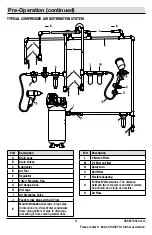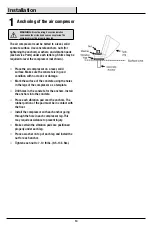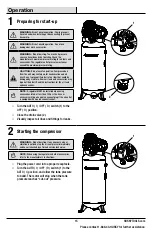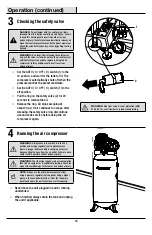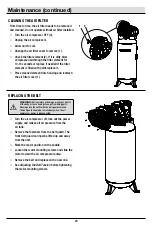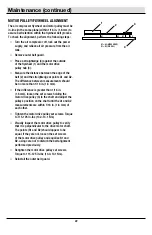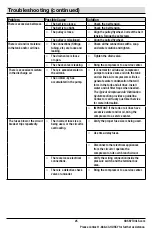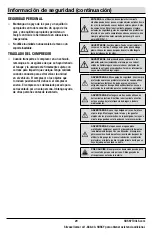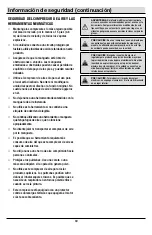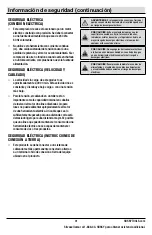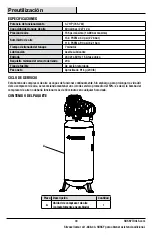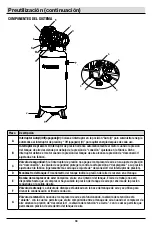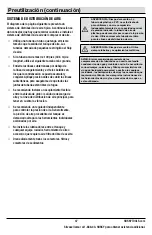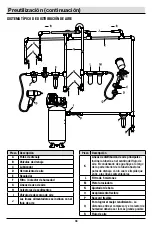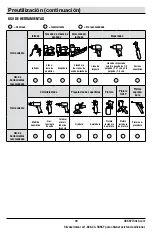
24
Problem
Possible Cause
Solution
The compressor does not
run.
□
The tank has insufficient
pressure.
□
When the tank pressure drops, the
compressor will turn on to cut-in
pressure.
□
There is no electrical
power to the unit.
□
Verify the wiring connection inside the
pressure switch and the terminal box
area.
□
The circuit breaker has
tripped or a fuse has blown
at the main power source.
□
Check the fuse/breaker to determine the
underlying cause.
□
The thermal overload
protector is actuated.
□
Turn the air compressor OFF ( O ).
□
Wait until the compressor cools down.
□
Depress the red reset button on the
motor.
□
Turn the air compressor to AUTO ( I ).
□
There is loss of power or
overheating.
□
Verify the wiring.
NOTE: Long lengths of electrical wiring
could cause power loss to the motor.
□
The pressure switch is bad.
□
Replace the pressure switch.
The motor hums while
running slowly, or it does not
run at all.
□
There is low voltage from
the power source.
□
Check the voltage with a voltmeter.
□
There are loose electrical
connections.
□
Verify the wiring connections inside the
pressure switch and the terminal box
area is secure.
□
There is a shorted or open
motor wiring.
□
Bring the compressor to a service center.
□
There is a defective check
valve or unloader.
□
Bring the compressor to a service center.
The compressor is making
squealing sounds.
□
The compressor pump has
no oil.
□
Check the pump oil.
□
The belt is too loose.
□
Check the belt tension.
The compressor is
experiencing restricted air
intake.
□
The air filter is dirty.
□
Clean or replace the air filter.
The compressor is making
knocking sounds.
□
There is a loose pulley.
□
Tighten the pulley set screws.
□
There is a loose flywheel.
□
Tighten the flywheel screw.
□
The compressor mounting
screws are loose.
□
Tighten the mounting screws.
□
The belt is too loose.
□
Check the belt tension.
□
An excessive amount of
carbon has built-up in the
pump.
□
Bring the compressor to a service center.
□
The belt is too tight.
□
Check the belt tension.
Troubleshooting


